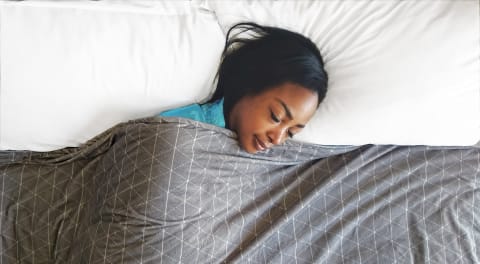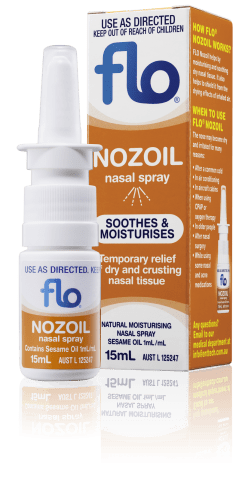Mouthpiece Snoring Devices
Mouthpiece Snoring Devices: A Supportive Guide to Better Breathing and Sleep
Snoring can be more than just a nighttime nuisance — for many, it’s the first sign of disrupted breathing during sleep. If you or a loved one has been experiencing frequent snoring, you might be exploring mouthpiece-style snoring devices as a non-invasive option. At Sove CPAP Clinic, we’re often asked about how these devices work, who they’re suitable for, and whether they can be used alongside other sleep therapies like CPAP.
In this guide, we’ll walk you through the role of mouthpieces in managing snoring, the types available, and when it’s time to seek more advanced treatment options. From real-world advice to product examples like Ripsnore, we’re here to help you breathe easier — and sleep better.
Mouthpiece Snoring Devices Like Ripsnore Can Support Better Breathing
Snoring typically occurs when the soft tissues in the throat relax during sleep and partially block the airway. This narrowing causes vibrations when you breathe, leading to the familiar sound of snoring. One of the most popular solutions to manage this is a mouthpiece-style snoring device, also known as a mandibular advancement device (MAD).
These devices work by gently positioning the lower jaw slightly forward. This small shift can help keep the airway open and reduce the vibrations that cause snoring. For many people, especially those with mild or occasional snoring, this can make a big difference in sleep quality — both for themselves and their partners.
Mouthpieces are typically used:
- For habitual snorers who have no confirmed diagnosis of sleep apnea.
- In early-stage or mild cases of obstructive sleep apnea (OSA).
- When patients cannot tolerate CPAP therapy or need an alternative for travel or short-term use.
It’s important to remember that while snoring can be harmless, it may also be a symptom of undiagnosed OSA. If your snoring is loud, frequent, or accompanied by gasping or excessive daytime tiredness, a sleep study is recommended.
Ripsnore Offers a Non-Invasive Mouthpiece Solution
One of the more well-known mouthpiece options in Australia is Ripsnore — a ready-to-use, thermoplastic device that softens in hot water and moulds to your bite for a semi-custom fit. It works by holding the jaw forward during sleep to prevent airway collapse.
Ripsnore stands out as a non-invasive, easy-to-use mouthpiece for managing snoring and mild sleep apnea. It is designed to gently advance the lower jaw to improve airflow, without requiring a dental visit or complex fitting process.
Benefits of Ripsnore include:
- Non-invasive, drug-free solution.
- Soft material that is comfortable for most users.
- Affordable and accessible, with no prescription needed for purchase.
- Easy to use and clean, making it suitable for travel.
Ripsnore is best suited to adults with mild snoring issues or as a trial option for those considering oral appliances. It’s not intended to treat moderate or severe sleep apnoea on its own but may support better breathing in low-risk individuals.
If you’re unsure whether Ripsnore is right for you, our team can help guide you through the decision. We offer in-clinic assessments and telehealth consultations to evaluate snoring severity and recommend the most appropriate options.
Compared to more complex mandibular advancement devices (MADs) that require dental fitting, Ripsnore offers an affordable and accessible option for those wanting to test the waters. It’s also easier to replace if lost or damaged.
Not All Snoring Devices Are Suitable for Sleep Apnoea
While mouthpiece snoring devices can be helpful for simple snoring, it’s critical to understand their limitations — especially when it comes to obstructive sleep apnoea (OSA).
OSA is a medical condition where the airway repeatedly collapses during sleep, leading to interruptions in breathing that affect oxygen levels, brain function, and overall health. It requires a more comprehensive approach to treatment than snoring alone.
Signs that snoring may actually be sleep apnea include:
- Loud, chronic snoring that disturbs others.
- Gasping or choking sounds during sleep.
- Daytime fatigue, even after a full night’s rest.
- Headaches or dry mouth in the morning.
- Poor concentration and irritability during the day.
In such cases, a mouthpiece alone is unlikely to offer effective treatment. CPAP therapy is the gold standard for moderate to severe OSA, as it provides consistent, pressurised airflow to keep the airway open all night.
If you’ve never had a sleep study, it’s worth investigating. Sove CPAP Clinic can help organise Medicare-rebated sleep studies to assess your breathing patterns and determine the safest, most effective treatment plan.
A Mouthpiece Can Be Paired with a Nasal CPAP Mask
For patients who struggle with CPAP due to mouth leaks or jaw positioning, combining a nasal CPAP mask with a mouthpiece can improve comfort and therapy effectiveness. This combination can help keep the airway open while also preventing oral breathing, which is a common barrier to successful CPAP use.
In this hybrid setup:
- The mouthpiece supports jaw alignment, reducing collapsibility.
- The nasal mask delivers pressurised airflow, treating apnoeic events.
- Dry mouth and mask leaks may be reduced, improving sleep continuity.
This approach is especially useful for:
- Patients who prefer nasal masks but experience mouth leaks.
- Individuals with mild-moderate OSA who want to reduce pressure levels.
- Those who need extra support without switching to a full-face mask.
Combination therapy can make CPAP more tolerable for those who struggle with certain side effects, like dry mouth or leaking masks. It can also help patients stay compliant with their therapy by reducing discomfort and improving outcomes.
Finding the right fit is key. Our team can help identify which nasal masks and mouthpieces are compatible, and we offer trials so you can test combinations before committing.
ALWAYS FOLLOW THE DIRECTIONS FOR USE. CPAP is used for Obstructive Sleep Apnoea treatment. When considering whether a sleep study or CPAP is right for you, speak to your doctor. Medicare criteria and T&Cs apply.
Frequently Asked Questions
Is it safe to use a mouthpiece without seeing a doctor first?
While mouthpieces like Ripsnore™ are available over the counter, it’s always safest to speak with a clinician before starting any snoring or sleep apnoea treatment. What might seem like simple snoring could be a symptom of something more serious, like obstructive sleep apnoea.
Seeing a doctor ensures you receive the right diagnosis and treatment plan — especially if you’re experiencing fatigue, loud snoring, or breathing disruptions during sleep. If a sleep study is recommended, it can often be arranged with a Medicare rebate.
Sove Tip: Book a consultation with Sove CPAP Clinic to discuss your symptoms and get guidance on whether a mouthpiece is appropriate for you.
Does a mouthpiece have to be custom-fitted?
Not all mouthpieces need to be custom-fitted. Devices like Ripsnore offer a “boil-and-bite” approach that adapts to your bite using hot water, providing a semi-personalised fit. However, for individuals with dental issues or more complex needs, a fully custom-fitted device (made by a dentist or specialist) may offer greater comfort and better results.
Custom mouthpieces are generally more durable and suited to long-term use, while ready-to-use options are ideal for trial or occasional use.
If comfort or jaw alignment is an issue, speak to us about local referrals for custom-fitted oral appliances.
Will a mouthpiece also help with teeth grinding?
Yes, many mouthpieces designed for snoring can also provide a degree of protection against bruxism (teeth grinding), as they act as a physical barrier between the upper and lower teeth. However, not all are specifically built for this purpose.
If you grind your teeth at night and also snore, you may benefit from a dual-purpose device — or consider using a separate night guard designed specifically for bruxism alongside your snoring solution.
Let us know if teeth grinding is a concern. We can help you choose the right product or refer you to a dental professional if needed.
Can a mouthpiece completely replace a CPAP machine for snoring?
It depends on the individual. For mild snoring or mild OSA, a mouthpiece may provide adequate relief. But for moderate to severe sleep apnoea, CPAP therapy is usually the most effective and medically recommended option.
Trying to replace a CPAP machine with a mouthpiece without professional advice can put your health at risk. Mouthpieces don’t provide the same airway support or oxygen stability as CPAP therapy.
We can assess your sleep apnoea severity and guide you through the best combination of treatments. You don’t have to choose one or the other — we’ll help you find the right balance.
What should I do if my mouthpiece interferes with my CPAP machine?
If you’re experiencing discomfort or reduced CPAP performance while using a mouthpiece, it’s likely due to misalignment or device incompatibility. Some users report air leaks, dry mouth, or jaw tension when combining both.
We recommend:
- Trying a nasal mask designed for use with oral appliances.
- Reassessing the fit of your mouthpiece with professional help.
- Booking a mask fitting or pressure adjustment session with our team.
Bring your current equipment to a Sove clinic or telehealth session — we’ll help you troubleshoot and optimise your setup for better results.








